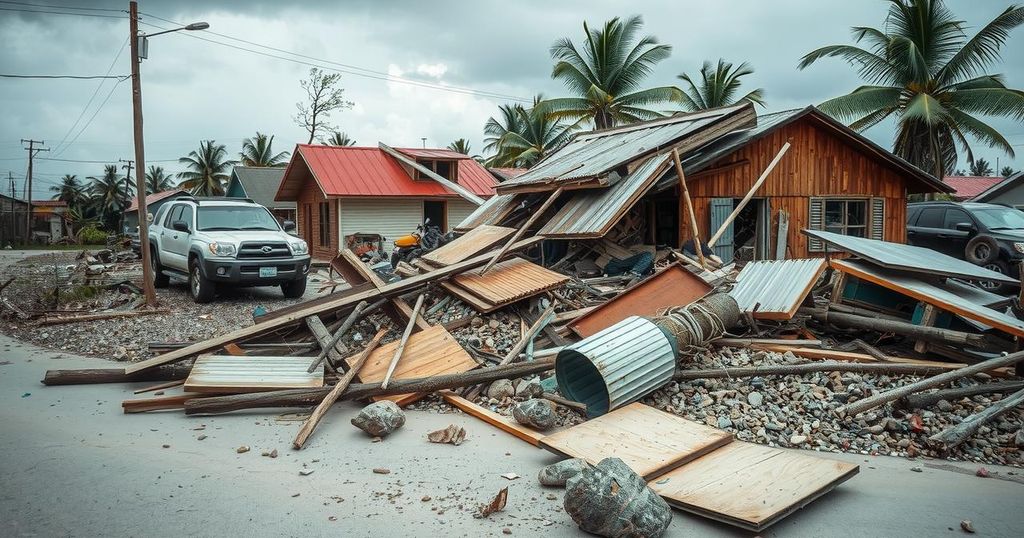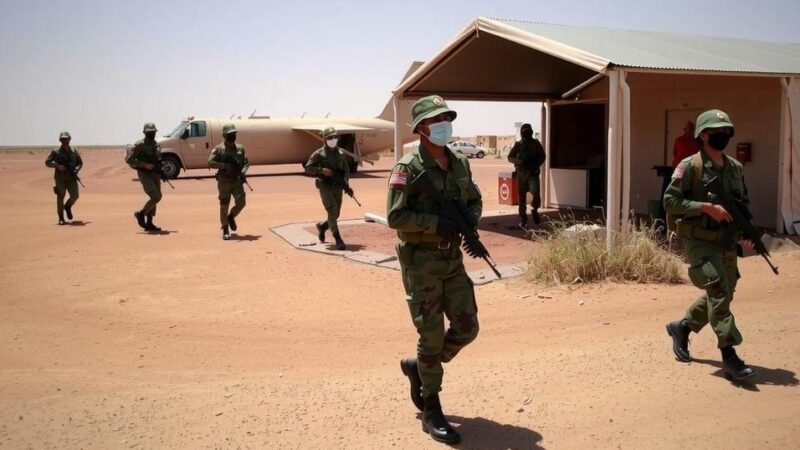Cyclone Chido has resulted in the deaths of 94 individuals in Mozambique and significantly impacted over 622,000 others. The cyclone caused major flooding, infrastructure damage, and disruptions to education and healthcare. Similar devastation occurred in Mayotte, where the storm was the worst in 90 years, also raising concerns over future preparedness and the effects of climate change on storm intensity.
Cyclone Chido has tragically claimed the lives of 94 individuals in Mozambique since making landfall on December 15, as reported by local authorities. The National Institute of Risk and Disaster Management (INGD) indicates that 768 people sustained injuries and that over 622,000 individuals were affected by the cyclone’s devastating impacts. The cyclone, with winds reaching 260 kilometers per hour (160 mph) and intense rainfall of 250 mm in the initial 24 hours, severely affected northern provinces already vulnerable to such natural disasters, namely Cabo Delgado, Niassa, and Nampula.
The educational system and healthcare services have suffered significant disruptions due to the cyclone, impacting over 109,793 students and damaging more than 52 sanitary units, which complicates access to essential health services for affected communities. Daniel Chapo, leader of Mozambique’s ruling party, assured that the government is mobilizing support at all levels to assist those in critically impacted areas such as Mecúfi, Nampula, Memba, and Niassa in their recovery efforts.
Before reaching Mozambique, Cyclone Chido wrought havoc in the French Indian Ocean territory of Mayotte, which experienced its worst storm in 90 years, afflicting tens of thousands. Casualties in Mayotte could potentially rise significantly, with local authorities reiterating the challenges they face in delivering basic necessities to residents. In the aftermath, the interior ministry reported ongoing efforts to distribute food and water while restoring essential services in the region.
This cyclone serves as a stark reminder of the heightened vulnerability of social infrastructures to climate change; the INGD emphasizes the urgent need for effective planning to mitigate future impacts. The assessment of climate change’s influence on severe storm events remains complex, yet the increasing temperatures are correlating to heightened storm intensity and precipitation, underscoring the human impact on climate dynamics as confirmed by the UN’s climate body, the IPCC.
Cyclone Chido exemplifies the destructive power of tropical cyclones, which are characterized by high wind speeds, heavy rainfall, and subsequent storm surges. Such natural disasters have profound consequences on communities, highlighting the ongoing challenges posed by climate change. Research from the Intergovernmental Panel on Climate Change (IPCC) indicates a connection between human activities and increased cyclone intensity and precipitation, thus raising concerns about the preparedness and resilience of countries vulnerable to these severe weather events.
In conclusion, Cyclone Chido’s impact has been devastating, claiming lives, injuring many, and significantly disrupting essential services in Mozambique. As authorities grapple with recovery efforts, the situation in Mayotte also illustrates the broader challenges faced by regions affected by extreme weather. This event emphasizes the urgent need for robust disaster preparedness and infrastructure resilience to mitigate future risks related to climate change.
Original Source: www.bbc.com







